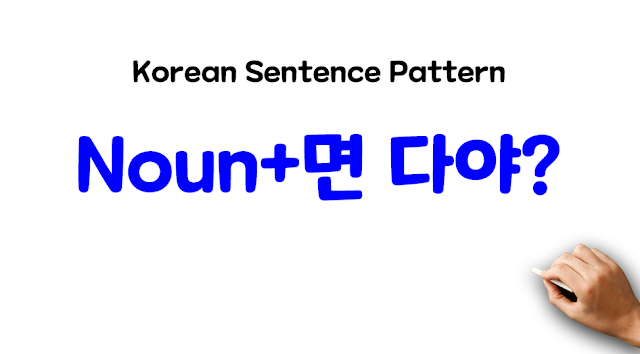Let’s take a look at the Korean sentence pattern Noun + 면 다야(?). The expression 다야 means Is that all? We use this to express that being this kind of person (with emphasis on who or what someone is) doesn’t make him better or above anyone else. It is not everything there is. For example, my brother was bossing me around like a king. He would pass me all the chores my mom asked him to do. One day, I decided to ignore him. That was when he started yelling and calling me names. So I said So what if you are my older brother? (Just because you are doesn't mean you can do anything you want). The main noun is 형 (older brother) since I am boy. Attach 면 if the noun ends in a vowel and 이면 if it ends in a consonant. Then, we add 다야 (casual) or 다예요 (polite). The actual sentence is 형이면 다야?
부자면 다예요?
So what if she is rich? (she has no right to spit on the face of the flight attendant)
반장이면 다야?
So what if he is the class president? (he can’t just boss everyone around while he does nothing)
연예인이면 다야?
So what if he is a
celebrity? (he should fall in line like everyone else)

